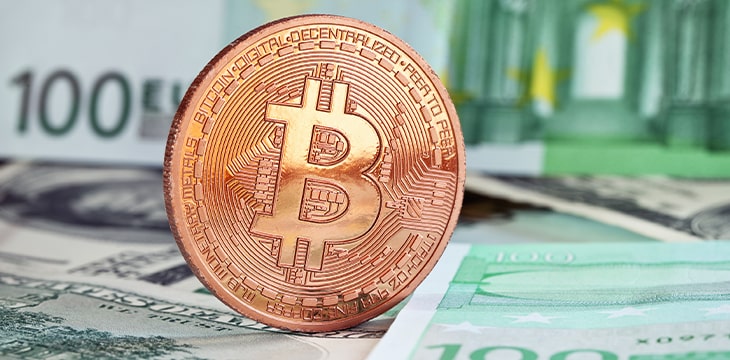|
Getting your Trinity Audio player ready...
|
A trade group representing major Asia-Pacific racing operators is sounding the alarm over the rising number of online betting sites that allow customers to wager using digital currencies, including BTC, Ethereum and Tether.
Recently, the Asian Racing Federation (ARF) Council on Anti-Illegal Betting & Related Financial Crime released a report into the use of blockchain and digital currencies in illegal betting. The report warns of digital currency’s capacity to evade scrutiny by gambling regulators and financial watchdogs, thereby “facilitating avoidance of anti-money laundering and know-your-customer procedures.”
The report claims that 780 ‘offshore’ gambling sites accept at least one of five digital currencies—BTC, Ethereum, Tether, Ripple and BCH—with the number of online betting and casino sites that accept BTC increasing by seven-fold and 13-fold, respectively, since 2018. The report alleges that this facilitates not only customers funding their wagering activity but also allows operators to “offshore the criminal proceeds of their illegal betting operations.”
The report singles out Asian-facing betting exchange Citibet as one of the leading unauthorized operators using digital currency to target bettors in Asian countries where wagering is either illegal or restricted to locally licensed sites.
Citibet is a longtime bête noire of the ARF, but the report suggests that Citibet has launched digital currency-only betting subsidiaries that are intent on further draining the milkshakes of approved betting operators in Hong Kong, Australia and other Asia-Pacific jurisdictions.
While BTC and Ethereum remain the most popular examples of digital currency-based wagering, the so-called ‘stablecoin’ Tether accounted for more than one-third of annual digital currency outflow from East Asia in 2019/20. In January, China’s Ministry of Public Security cited Tether as playing an increasing role in unauthorized gambling operators’ illegal ‘fourth-party’ payment processing services.
The ARF report also warned of an emerging threat from the Tron blockchain’s focus on gambling-related dapps. In 2019, gambling-related dapps accounted for US$3.9b of the US$4.4 billion in total transaction volume on Tron. The ARF warns that the promotion of greater anonymity and KYC-avoidance by many Tron-based dapps foretells even greater headaches for Asian-approved gambling operators.
By contrast, BSV enterprise blockchain was designed from the start to work with regulators, including those overseeing gambling. BSV’s scaling capacity allows for a complete audit trail of customer activity, making it the first traceable electronic money system, while also permitting on-chain records that allow both customers and regulators to ensure that the games on offer are provably fair.
See also: CoinGeek Live panel, iGaming Future on the Bitcoin Blockchain

 02-13-2026
02-13-2026 




